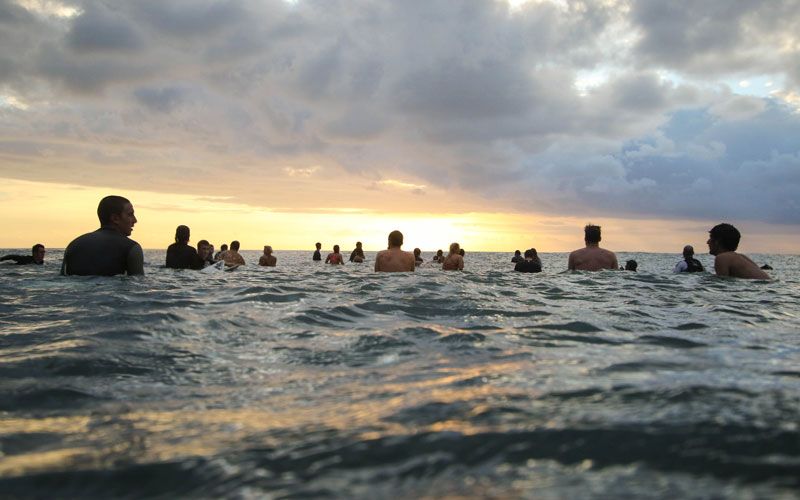


The importance of knowing basic first aid and following routine sea safety advice has been highlighted after a recent incident at Havelet Bay where members of the public helped a fellow swimmer, said the emergency services and the Coastguard.
A woman is reported to have been found unconscious in the sea while swimming recently.
A spokesperson for Guernsey Police confirmed that officers had attended to reports of a medical incident involving a swimmer to support the other emergency services.
A spokesperson for St John Ambulance and Rescue Service confirmed that when their crew arrived to the scene, the patient had already been put into the recovery position, which illustrates the importance of knowing first aid.
“The ambulance service responded to an incident at Havelet Bay following a 999 call from a member of the public," the spokesperson confirmed.
"A double crewed ambulance, paramedic and an ambulance officer were deployed to the scene.
"The casualty had been rescued from the water and placed in the recovery position prior to the arrival of the ambulance.
"They given treatment by the crew before being conveyed to the Emergency Department at the PEH.”
While the patient's ongoing condition is unknown, they are believed to have escaped without any lasting effects.

Pictured: While the weather is changeable, Sunday is looking to be a hot sunny day with a late morning high tide.
With the weather looking to remain sunny into next week, with highs of 27c forecast for Sunday, Guernsey Coastguard is urging thrill-seekers to prioritise safety when heading to the sea.
“Watching the world’s best compete at the Olympics is sure to whet the appetite for many aspiring swimmers and divers," said Jerome Davis, Head of Guernsey Coastguard.
“Guernsey has a fantastic natural and marine environment, but our local waters can be unforgiving. In some areas, Guernsey’s tidal currents can exceed five knots on spring tides, which surpasses even the speed of an elite Olympic swimmer.”
Mr Davis urged extreme caution to anyone considering jumping into the sea, particularly from high rocks or walls.
He said anyone who spots someone in the water who appears to be in danger should call 999 or 112 and ask for the Coastguard immediately.
“We want everyone to enjoy our beautiful waters and coastline, but please be safe," he said.
Tip 1
Check the weather and tides
Do not get caught out by the conditions
Tip 2
Carry a means of calling for help
For example a mobile phone in a waterproof pouch, a Personal Locator Beacon (PLB) or VHF/DSC radio
Tip 3
Let your loved ones know where you are and gain quick access to emergency services
Tip 4
Share your plans
Tell someone where you are going and what time you’ll be back, if you do not return as planned they can raise the alarm
Tip 5
Remember Float to Live
If you find yourself in trouble in the water, relax and float on your back like a starfish
If you see someone in trouble in the water call 999 and ask for the Coastguard
Cold water shock is how our body reacts to suddenly entering cold water, it can make you gasp uncontrollably and inhale water.
Cold water shock can leave you helpless in seconds, even the fittest person would be unable to swim or focus on breathing.
All waters around the UK are potentially cold enough to induce cold water shock, even in high summer.
If you enter the water unexpectedly, take a minute - the initial effects of cold water pass in less than a minute so do not try to swim straight away. Relax and follow the Float to Live advice.
Reduce the risks:
Open water swimming has grown in popularity in recent years. But it’s not without risk - it’s easy to underestimate the conditions or overestimate what our bodies are capable of.
Reduce the risks:
Comments
Comments on this story express the views of the commentator only, not Bailiwick Publishing. We are unable to guarantee the accuracy of any of those comments.